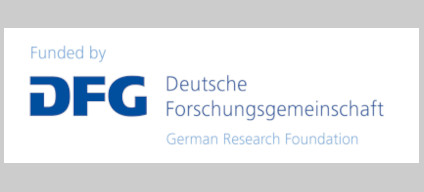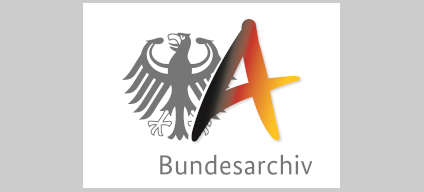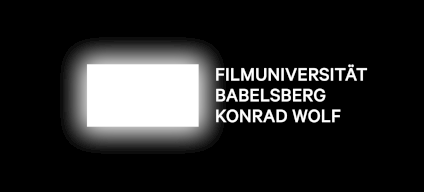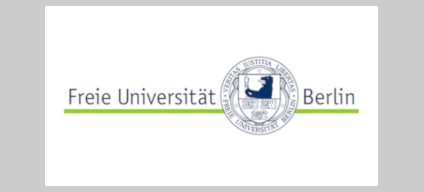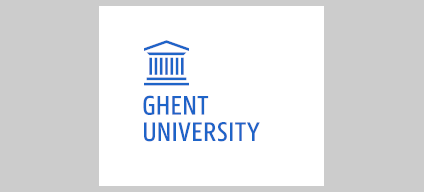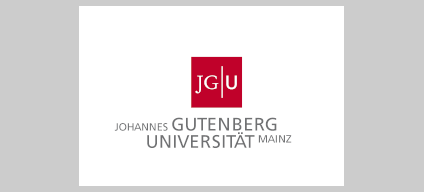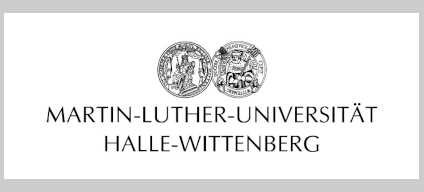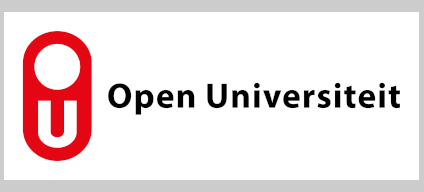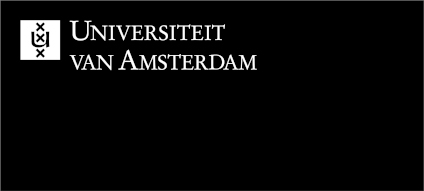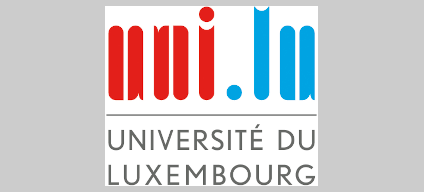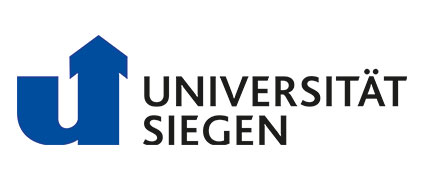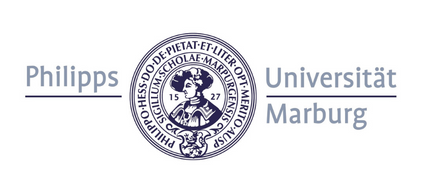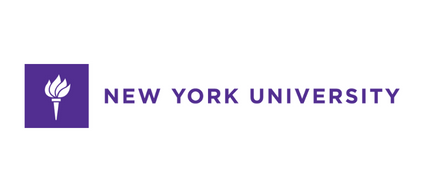Main Content
Speakers & Chairs
Inhalt ausklappen Inhalt einklappen Susan Aasman
Susan Aasman is Professor in Digital Humanities at the University of Groningen, the Netherlands. Her research interest is in media history with a focus on amateur media technologies and practices, documentary history, web history and web archival practices and in developing computational methods for analyzing audiovisual data. She is the director of the Centre for Digital Humanities and was responsible for the start of the Minor and the Master-track Digital Humanities at the University of Groningen. She was co-applicant of and senior researcher in the NWO-funded research project: “Changing platforms of ritualized memory practices” (2012-2016). She is an active member of WarcNet (Web ARChive studies network researching web domains and events) and is currently involved as principle investigator in several funded DH research projects. She is reviewer for several national and international journals, conferences, and publishers, and member of the programme committees for a number of international conferences.
Inhalt ausklappen Inhalt einklappen Clara Auclair
Clara Auclair is a PhD Candidate at University of Rochester/Université Paris Cité. Clara is studying the history and memory of French filmmakers and workers settled in Fort Lee, NJ in the 1910s. Her work reflects on self-archiving in film and media history, provenance and the tension between familial/intimate archives and institutional ones. Clara has been experimenting with data visualizations as a point of entry into datasets, to map the trajectory of early movie workers from France to New Jersey. She serves as a secretary to Domitor, the international society for the study of early cinema.
Inhalt ausklappen Inhalt einklappen Taylor Arnold (online)
Taylor Arnold is Associate Professor of Statistics in the Department of Mathematics and Computer Science at the University of Richmond. He studies massive cultural datasets in order to address new and existing research questions in the humanities and social sciences. He specializes in the application of statistical computing to large text and image corpora. The study of data containing linked text and images, such as newspapers with embedded figures or television shows with associated closed captions, is of particular interest. Research products take on several forms: book length manuscripts, technical reports, new software implementations, and digital projects intended for broad public consumption.
Inhalt ausklappen Inhalt einklappen Nicole Braida
Nicole Braida completed her bachelor's degree in Archeology at the University of Padua and her international master's degree in film and audiovisual studies (IMACS) at the University of Udine. In 2021 she received her doctorate as part of the graduate school "Configurations of Film" at the Johannes Gutenberg University Mainz with the doctoral thesis "Migrating through the Web", where she investigated interactive web-based practices about migration. Since April 2021 she is a research associate and postdoc at DiCi-Hub (A Digital Hub for Film Studies) at the University of Mainz where she also teaches digital approaches to film studies.
Inhalt ausklappen Inhalt einklappen Marcus Burkhardt
Marcus Burkhardt is Postdoctoral Researcher in the Media Studies Department at the University of Siegen. Together with Karin Knorr Cetina, he heads the sub-project "Agentic Media: Formations of Semi-Autonomy" in the SFB 1187 "Media of Cooperation". He has a background in media studies, philosophy and computer science and received his doctorate at Justus-Liebig-University Gießen with a thesis on the media theory of digital databases. His research interests include the history and theory of digital media, especially the logi(sti)cs of database technologies, big data and algorithmic media as well as digital methods. https://orcid.org/0000-0003-0382-3128
Inhalt ausklappen Inhalt einklappen Isadora Campregher Paiva
Isadora Campregher Paiva is a doctoral student and lecturer at the Goethe University Frankfurt. She is a research associate in the project “Digital Cinema-Hub”, which is funded by the Volkswagen Foundation (2021–2026) and dedicated to the development and application of digital methods to the study and teaching of film. She received her BA in International Relations and MA in Sociology with a focus on Gender Studies from UFRGS (Brazil). She followed these with the International Master in Audiovisual and Cinema Studies (IMACS) based at the Goethe University Frankfurt, with exchange semesters at the University of Liège and University of Amsterdam.
Inhalt ausklappen Inhalt einklappen Sarah-Mai Dang
Sarah-Mai Dang is Principal Investigator of the BMBF research group “Aesthetics of Access. Visualizing Research Data on Women in Film History” (DAVIF) (2021-2025) at the Institute of Media Studies at Philipps-Universität Marburg. Based on her current research and teaching focus on digital film historiography, data visualization, feminist theory, open science, and media aesthetics, she also founded the international DFG research network “New Directions in Film Historiography. Digital Tools and Methods in Film and Media Studies” (2019-2022). In addition, she initiated the collaborative Open Media Studies blog and the hybrid publishing project oa books, where she published her dissertation and blogs about academic publishing. She received a doctoral degree in Film Studies from Freie Universität Berlin and a Master of Arts from University of Michigan and has published widely on the effects of digitization in the humanities. (https://orcid.org/0000-0002-1960-247X, @SarahMaiDang).
Inhalt ausklappen Inhalt einklappen Josephine Diecke
Josephine Diecke is a film scholar working across the fields of media archaeology, STS, moving image conservation and digital methods with a sustained interest in audiovisual technologies, discourses and restoration ethics. In her dissertation, part of the ERC-project "Film Colors: Technologies, Cultures, Institutions", she contextualizes the discursive construction of Agfacolor and Orwocolor in selected cultural and socio-political frameworks from the 1930s to the 1990s. She currently works as an academic coordinator and postdoctoral researcher at the VW-project "DiCi-Hub (Digital Cinema Hub): A Research Hub for Digital Film Studies" at Philipps University Marburg.
Inhalt ausklappen Inhalt einklappen Paul Duchesne
Paul Duchesne is a software engineer with the Open Science Lab at the Technische Informationsbibliothek in Hannover, specializing in Wikibase and Linked Open Data for cultural data. He is an active member of the FIAF Linked Open Data Task Force, including contributing heavily to the forthcoming FIAFcore ontology for film archives.
Inhalt ausklappen Inhalt einklappen Julia Eckel
Julia Eckel is Junior Professor for Film Studies at the Department of Media Studies at Paderborn University, Germany, where she is jointly responsible for the department's 16mm and 8mm film archive. In addition, her main research focus lies in the field of animation studies and she is currently working on a book on the nexus of animation, documentation, and demonstration. Further interests are audiovisual anthropomorphism, animation and AI, temporal complexity in film, screencasting, and selfies. Recent publications include Das Audioviduum. Eine Theoriegeschichte des Menschenmotivs in audiovisuellen Medien (2021) and the two co-edited volumes Ästhetik des Gemachten. Interdisziplinäre Beiträge zur Animations- und Comicforschung (2018) and Im Wandel … Metamorphosen der Animation (2017).
Inhalt ausklappen Inhalt einklappen Jane Gaines
Jane M. Gaines is Professor of Film, Columbia University, and Professor Emerita of Literature and English, Duke University who in 2018 received the Society for Cinema and Media Studies Distinguished Career Award and in 2022 an Honorary Doctorate from the University of Stockholm. She is author of three award-winning books: Contested Culture: The Image, the Voice and the Law (North Carolina, 1991), Fire and Desire: Mixed Race Movies in the Silent Era (Chicago, 2001) and Pink-Slipped: What Happened to Women in the Silent Film Industries? (Illinois, 2018). She also works on philosophy of history, intellectual property and documentary radicalism.
Inhalt ausklappen Inhalt einklappen Matthias Grotkopp
Matthias Grotkopp is Assistant Professor for Digital Film Studies at “Cinepoetics – Center for Advanced Film Studies” and the Seminar for Film Studies at Freie Universität Berlin. He is the author of Cinematic Poetics of Guilt. Audiovisual Accusation as a Mode of Commonality (Berlin/Boston: De Gruyter 2021). He supervises the project “Intervening World Projections: Audiovisuality of Climate Change” which is part of the recently established CRC 1512 “Intervening Arts” funded by the German Research Council.
Inhalt ausklappen Inhalt einklappen Malte Hagener
Malte Hagener is a Professor in Media Studies with a focus on the history, aesthetics and theory of film at Philipps University Marburg. He directs the DFG-funded project media/rep/ - an open access repository in media studies. He is a co-founder of NECS – European Network for Cinema and Media Studies as well as member of the editorial board of the peer-reviewed OA-journal NECSUS – European Journal of Media Studies.
Inhalt ausklappen Inhalt einklappen Feng-Mei Heberer
Feng-Mei Heberer is Assistant Professor in the Department of Cinema Studies at New York University and a Fellow at the BMBF Research Group “Aesthetics of Access. Visualizing Research Data on Women in Film History” (DAVIF) led by Sarah-Mai Dang at the Philipps-Universität Marburg for the fall 2022.
Inhalt ausklappen Inhalt einklappen Adelheid Heftberger
Dr. Adelheid Heftberger is deputy head of the Film Archive in the Bundesarchiv in Berlin. In the past, she worked as a researcher, curator, and archivist at Brandenburg Center für Media Studies in Potsdam and at the Austrian Filmmuseum in Vienna. She holds a PhD in Slavic Studies and obtained a Master degree in Comparative Literature from the universities of Innsbruck and Vienna. In 2016, she completed her M.A. of Library and Information Sciences at Humboldt-Universität zu Berlin. She is head of the FIAF Cataloguing & Documentation Commission and actively supports the Open Science movement.
Inhalt ausklappen Inhalt einklappen Tim van der Heijden
Tim van der Heijden is Assistant Professor of Media Studies at the Open University of the Netherlands. He obtained his PhD degree in media history from Maastricht University. His dissertation "Hybrid Histories: Technologies of Memory and the Cultural Dynamics of Home Movies, 1895-2005" investigates the relation between changing media technologies (film, video, digital media) and home movie practices from a long-term media historical perspective. Between 2017 and 2021, he worked at the Luxembourg Centre for Contemporary and Digital History (C2DH) of the University of Luxembourg as postdoctoral researcher and coordinator of the interdisciplinary doctoral training unit “Digital History and Hermeneutics” (DTU-DHH) and as postdoctoral researcher within the project “Doing Experimental Media Archaeology: Practice and Theory” (DEMA).
Inhalt ausklappen Inhalt einklappen Franziska Heller (canceled)
Franziska Heller is Professor of Media Studies with a focus on media and digital cultures at Martin-Luther-Universtität Halle-Wittenberg. Previously, she was a Senior Fellow at the Cinepoetics Research College – Center for Advanced Film Studies at the Free University of Berlin in 2020-2021. From 2019 to 2020 she was a FONTE guest professor at the Film University Babelsberg KONRAD WOLF in Potsdam. 2015-2016 and 2018-2019 she represented the chair of Prof. Dr. Barbara Flückiger at the Department of Film Studies at the University of Zurich (UZH). In 2018, Franziska Heller habilitated at the University of Zurich with the thesis: Update! Film and media history in the age of digital reproducibility.
Inhalt ausklappen Inhalt einklappen Maggie Hennefeld (online)
Maggie Hennefeld is Associate Professor of Cultural Studies & Comparative Literature and McKnight Presidential Fellow at the University of Minnesota, Twin Cities. She is author of Specters of Slapstick and Silent Film Comediennes (Columbia UP, 2018), co-editor of the journal Cultural Critique (UMN Press), co-editor of two volumes: Unwatchable (Rutgers UP, 2019) and Abjection Incorporated: Mediating the Politics of Pleasure and Violence (Duke UP, 2020), and co-curator of Cinema's First Nasty Women (Kino Lorber, 2022).
Inhalt ausklappen Inhalt einklappen Laura Horak (online)
Laura Horak is an Associate Professor of Film Studies at Carleton University and director of the Transgender Media Lab and Transgender Media Portal. She is also co-curator of Cinema's First Nasty Women (Kino Lorber, 2022).
Inhalt ausklappen Inhalt einklappen Pauline Junginger
Pauline Junginger is a doctoral candidate and research assistant in the BMBF research group "Aesthetics of Access. Visualizing Research Data on Women in Film History" (DAVIF) at Philipps-Universität Marburg. In her research she combines media studies, feminist theory, digital humanities, and science and technology studies. During her master‘s degree in European Media Studies at the University of Potsdam, she was part of an interdisciplinary research team that developed a visualization technique for exploring image collections: the Close-up Cloud. Before joining DAVIF, she worked as a project manager at the German Informatics Society supporting projects in the fields of AI, graphical modeling and research data management.
Inhalt ausklappen Inhalt einklappen Fabian Kling
Fabian Kling studied Media Design at the DHBW Ravensburg and worked in advertising until 2017. He studied Film Studies and Media Dramaturgy at the Johannes Gutenberg-University in Mainz. In 2022 he graduated with his thesis "Digital Cartography as a Method of Writing Film History. Concept and Design for a Digital Map Containing Biographical Sources". Combining theoretical and practical frameworks, he gathered digitized and digital born sources on the Camera Operator and Director of Photography Otto Kanturek (1899-1941) to synthesize them in a visual form. Thereby, the thesis reflects the visibility and accessibility of German film migration between 1933-1945 and its protagonists. Fabian Kling is currently a PhD candidate and lecturer in the Film Studies/Media Dramaturgy department at the Johannes Gutenberg-University Mainz.
Inhalt ausklappen Inhalt einklappen Bregt Lameris
Bregt Lameris is an Assistant Professor in Media Studies at the Open University in The Netherlands. She is working on her habilitation manuscript “Feeling Color” for the University of Zurich, based on her work for the ERC Advanced Grant project ‘FilmColors’. Other research interests are media archaeology, film archiving, film historiography, affect, emotions and subjectivity in film, media and mental health. In 2017 she published her first monograph Film Museum Practice and Film Historiography. The Case of the Nederlands Filmmuseum (1946-2000), which is available in Open Access through Amsterdam University Press.
She is currently a member of the Steering Committee and the Open Scholarship Committee of NECS, as well as one of the workgroup leaders of the Open Media Studies workgroup of the Gesellschaft für Medienwissenschaften (GfM).
Ph.D. in Media and Culture Studies (Utrecht University), BA and MA in Cinema and Theatre Studies (Radboud University).Inhalt ausklappen Inhalt einklappen Skadi Loist
Skadi Loist is Assistant Professor (Juniorprofessor) for Production Cultures in Audiovisual Media Industries at the Film University Babelsberg KONRAD WOLF in Potsdam, Germany. Skadi’s research focusses on film festivals & circulation, queer film culture, and screen industries, diversity and sustainability. Skadi is Principle Investigator (PI) of the research project “Film Circulation on the International Film Festival Network and the Impact on Global Film Culture” (BMBF 2017–2022) as well as Lead PI of the international research project “GEP Analysis: Assessing, Understanding, and Modeling the Impact of Gender Equity Policies (GEP) in the Film Industry” (DFG/ESRC/SSHRC 2021–2024), which both use data visualization as part of the research process. https://orcid.org/0000-0002-8299-4103
Inhalt ausklappen Inhalt einklappen Kai Matuszkiewicz
Kai Matuszkiewicz is a media scholar at Philipps University Marburg. His research interests focus on Game Studies, Open Science, Media didactics, narratology, media production and reception, and Digital Humanities. His most recent book is Zwischen Interaktion und Narration. Die Heldenreise in digitalen Spielen als Handlungs- und Erzählstruktur (2019). He is also co-editor of the Open-Media-Studies-Blog.
Inhalt ausklappen Inhalt einklappen Nanne van Noord
Dr. Nanne van Noord is Assistant Professor at the Multimedia Analytics lab of the University of Amsterdam. His research lies at the intersection of Computer Vision and Visual Culture.Inhalt ausklappen Inhalt einklappen Julia Noordegraaf
Julia Noordegraaf is professor of Digital Heritage in the department of Media Studies at the University of Amsterdam. Within the Faculty of Humanities she acts as director of the digital humanities research program and lab Creative Amsterdam (CREATE) which studies the history of urban creativity using digital data and methods. Noordegraaf’s research focuses on the preservation, exhibition and reuse of audiovisual and digital cultural heritage. She has published, amongst others, the monograph Strategies of Display (2004/2012) and, as principal editor, Preserving and Exhibiting Media Art (2013) and is currently completing her next monograph Digital Truths: Practicing Media Historiography in the Digital Age. Noordegraaf acts as principal editor of the Cinema Context database on Dutch film culture and currently leads research projects on the reuse of digital heritage in data-driven historical research (besides CREATE in the project Virtual Interiors as Interfaces for Big Historical Data Research) and developing an infrastructure for cross-media research on public debates (Twi-XL). She is a former fellow of the Netherlands Institute for Advanced Study in the Humanities and Social Sciences and acts as board member for Media Studies in CLARIAH, the national infrastructure for digital humanities research, funded by the Netherlands Organization for Scientific Research, NWO. Noordegraaf currently coordinates the realization of the Amsterdam Time Machine and acts as Vice President of the European Time Machine Organization that aims to build a simulator for 5.000 years of European history.
Inhalt ausklappen Inhalt einklappen Mila Oiva
Dr. Mila Oiva is a Senior Research Fellow at the ERA Chair for Cultural Data Analytics project at CUDAN Open Lab at Tallinn University. She holds PhD from Cultural History (University of Turku, Finland) with the specialization on the history of Russia and Poland and digital research methods. She was a visiting Fulbright scholar at the Institute of Slavic, East European, and Eurasian Studies (ISEEES) at UC Berkeley in 2014-2015, and participated in the Culture Analytics long program at the Institute for Pure and Applied Mathematics (IPAM) at UCLA in the spring of 2016. Her current research interests focus on circulation of information and formation of knowledge in long temporal continuum. Currently she runs a project dedicated to studying Soviet and Estonian newsreels in 1922-1997 computationally. Earlier she has been studying the 19th century global news flows, circulation of fake historical narratives in the Russian language internet forum discussions, and the Cold War era transnational information circulation. Oiva has published books and journal articles on digital history and circulation of knowledge, including Fridlund, Mats, Mila Oiva, and Petri Paju, eds. Digital Histories. Emergent Approaches within the New Digital History. Helsinki University Press 2020 (open access); Oiva, Mila, Hannu Salmi, and Bruce Johnson. Yves Montand in the USSR: Cultural Diplomacy and Mixed Messages. Palgrave Macmillan, 2021; Oiva, Mila, Asko Nivala, Hannu Salmi, Otto Latva, Marja Jalava, Jana Keck, Laura Martínez Domínguez, and James Parker. “Spreading News in 1904. The Media Coverage of Nikolay Bobrikov’s Shooting”, Media History 25, no. 3 (August 11, 2019): 1–17 (open access); and Oiva, Mila, and Anna Ristilä. “Mapping the Pseudohistorical Knowledge Space in the Russian World Wide Web.” In Medievalism in Finland and Russia: Twentieth- and Twenty-First-Century Aspects, edited by Reima Välimäki. Bloomsbury, forthcoming 2022.
Inhalt ausklappen Inhalt einklappen Christian Gosvig Olesen
Christian Gosvig Olesen is Assistant Professor Digital Media and Cultural Heritage at the University of Amsterdam. He teaches courses in film and media studies and in moving image archiving and presentation. His research interests include moving image archiving theory and history, film and media historiography, digital methods, found footage, remixing and practice-based research, the latter with a special interest in critical practices of digital (film) sampling in experimental and popular music. Currently, he is also Teaching & Training Officer for the CLARIAH Media Suite, where he coordinates and develops the Media Suite Learn initiative. In this capacity he helps integrating the Media Suite's collections and tools into curricula and research projects at Dutch universities, while researching the historical emergence of multimedia scholarship and digital research environments in media studies. This research focus also feeds into his current book project Remaking Film History: A Critical Introduction to Digital Historiographies, Methods and Approaches (working title).
Inhalt ausklappen Inhalt einklappen Frauke Pirk
Frauke Pirk is research assistant with a focus on Digital Humanities/Data Science in the project “DiCi-Hub: A Research Hub for Digital Film Studies” (funded by the VW Foundation) at Johannes Gutenberg-University Mainz since July 2021. She obtained her Bachelor of Arts in German Studies at the Technical University Chemnitz in 2018. In 2021 she completed her Master’s degree in “Digitale Methodik in den Geistes- und Kulturwissenschaften” (Digital Methodology in the Humanities and Cultural Studies) at the University and University of Applied Sciences Mainz in 2021. Since October 2021 she is furthermore research assistant at the Studium generale at the University of Mainz. She is interested in computer philology, data literacy and digital methods in film studies.
Inhalt ausklappen Inhalt einklappen Ulrich Rüdel (canceled)
Ulrich Ruedel holds a doctorate in Analytical Chemistry from the University of Muenster, Germany and has worked on optical biochemical sensors and intellectual property rights before turning to the practice and science of film preservation. As a 2005 graduate of the L. Jeffrey Selznick School, he has explored heritage color systems such as Technicolor at George Eastman Museum. Subsequently, he worked as Research and Development Manager at Haghefilm Conservation and Project Manager for the non-profit Haghefilm Foundation, and as Conservation Technology Manager at the British Film Institute, before accepting his position as professor for conservation and restoration of modern media (moving image and sound, photography) at HTW - University of Applied Sciences, Berlin.
Inhalt ausklappen Inhalt einklappen Elif Rongen-Kaynakçi (online)
Elif Rongen-Kaynakçi is the Curator of Silent film at Eye Filmmuseum. She graduated from University of Amsterdam with a degree in Film and Television Studies in 1997, specializing in 'national film histories'. Since 1999 at Eye, she has worked on the discovery, restoration and presentation of many presumed lost films. These include Beyond the Rocks (starring Gloria Swanson and Rudolph Valentino, 1922), The Floor Below (starring Mabel Normand, 1918), Az utolsó hajnal (Michael Curtiz, 1917), and many more. She is directly involved with the archival festivals Il Cinema Ritrovato, Le Giornate del Cinema Muto and co-curator of ‘Views of the Ottoman Empire’; an independent travelling archival presentation project since 2014, and 'Cinema's First Nasty Women'; a DVD-box with 99 films, expected to be released by the end of 2022.
Inhalt ausklappen Inhalt einklappen Kate Saccone
Kate Saccone is a PhD candidate at the University of Amsterdam where her practice-led research project focuses on contemporary silent film curating and feminist film historiography. She holds an MA in Media Studies (Preservation & Presentation of the Moving Image) from the University of Amsterdam (2022) and an MA in Film & Media Studies from Columbia University (2013). She is also the project manager and an editor of Columbia’s Women Film Pioneers Project (WFPP).
Inhalt ausklappen Inhalt einklappen Alexandra Schneider
Alexandra Schneider is Professor of Film Studies at Johannes Gutenberg-University Mainz. Her recent publications include the volume Format Matters. Standards, Practices, and Politics in Media Cultures (meson press, 2020) she edited together with Marek Jancovic and Axel Volmar. She is Principal Investigator of “DiCi-Hub: A Research Hub for Digital Film Studies”. In addition, she works with Imme Klages on historical film migration from Nazi-Germany in a digital methods project funded by the German Research Foundation (DFG).
Inhalt ausklappen Inhalt einklappen Tom Slootweg
Tom Slootweg is assistant professor of contemporary history at the University of Groningen. He is currently exploring various digital tools for doing media historical research and has been involved in the development of the CLARIAH Media Suite research infrastructure as a postdoctoral researcher. Tom is also a board member of the Dutch Foundation for Amateur Film (Stichting Amateurfilm) and is the editor-in-chief of TMG Journal for Media History.
Inhalt ausklappen Inhalt einklappen Lauren Tilton (online)
Lauren Tilton is Associate Professor of Digital Humanities in the Department of Rhetoric & Communication Studies and Research Fellow in the Digital Scholarship Lab (DSL) at the University of Richmond. Her research focuses on 20th and 21st century U.S. visual culture. She is director of Photogrammar, a digital public humanities project mapping New Deal and World War II documentary expression funded by the ACLS and NEH, and co-author of Humanities Data in R: Exploring Networks, Geospatial Data, Images and Texts (Springer, 2015). Her scholarship has appeared in journals such as American Quarterly, Archive Journal, Digital Humanities Quarterly, and Digital Scholarship in the Humanities. Her most recent project, Distant Viewing, focuses on large scale image analysis using computer vision and is funded by an NEH ODH Level II Advancement Grant. She also serves on the Association for Computing in the Humanities (ACH) Executive Council. She received her PhD in American Studies from Yale University.
Inhalt ausklappen Inhalt einklappen Casper Tybjerg
Casper Tybjerg is Associate Professor of Film Studies at the Department of Communication, University of Copenhagen. He is a scholar of film historiography and Danish and international silent film. He wrote his dissertation on Danish silent film at the University of Copenhagen. Tybjerg is part of the international research project "A Common Film Culture? Denmark and Germany in the Silent Film Era, 1910-1930", housed at the Danish Film Institute. The project will conclude with the publication of the anthology Danish and German Silent Cinema, 1910-1930: Towards a Common Film Culture, edited by Tybjerg and Lars-Martin Sørensen, in 2023. Tybjerg’s contributions to the project have focused on film style and historiographical concepts. Tybjerg has written many articles on film history and has recently completed a book on the theory and method of film historiography, focusing on the work of Carl Theodor Dreyer. He has also assisted in the DFI’s efforts to restore Danish silent films and has co-organized several retrospectives, including at the Pordenone Silent Film Festival.
Inhalt ausklappen Inhalt einklappen Deb Verhoeven
Deb Verhoeven is Canada 150 Research Chair in Gender and Cultural Informatics at University of Alberta. Previously she was Associate Dean of Engagement and Innovation at the University of Technology Sydney. Before this she was Professor of Media and Communication at Deakin University. Until 2011 she held the role of director of the AFI Research Collection at RMIT. A writer, broadcaster, film critic and commentator, Verhoeven is the author of more than 100 journal articles and book chapters. Her most recent book is Jane Campion published in 2009 by Routledge, a detailed case study of the commercial and cultural role of the auteur in the contemporary film industry. Verhoeven is a leading proponent of the digital humanities in Australia. Her recent research has addressed the vast amounts of newly available 'cultural data' that has enabled unprecedented computational analysis in the humanities. In addition to scholarly publications and media appearances, she has focused on the development of online research resources such as the Cinema and Audiences Research Project (CAARP) database, an ongoing exploration of big cultural data (kinomatics) and The Ultimate Gig Guide (TUGG) an online archive of live music information.
Inhalt ausklappen Inhalt einklappen Yvonne Zimmermann
Yvonne Zimmermann is Professor of Media Studies at Philipps-Universität Marburg. Recent books include the co-authored Advertising and the Transformation of Screen Cultures (AUP 2021) and the co-edited Films That Work Harder: The Global Circulations of Industrial Cinema (AUP 2022). She is the editor of a special issue on “Asta Nielsen, the Film Star System and the Introduction of the Long Feature Film” in Early Popular Visual Culture (2021). She is Principal Investigator of “DiCi-Hub: A Research Hub for Digital Film Studies”.
